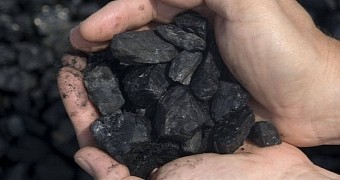A new report in the journal Nature argues that, if the world is to even stand at chance of limiting global warming to just 2 degrees Celsius (3.6 degrees Fahrenheit), dirty fuels such as coal and oil must be phased out without delay.
The reason scientists and high officials alike are eager to see this 2 degrees Celsius target met is that, should global warming move past this point, the world stands to experience severe changes in terms of climate.
Simply put, flash floods, prolonged periods of drought, and other natural disasters might become a thing of the day. What this means is that, unless the 2 degrees Celsius target is met, human society itself will be at risk, specialists explain.
Putting global warming on a tight leash
Study authors Christophe McGlade and Paul Ekins with the University College London explain that, to make sure that the average increase in global temperatures does not top 2 degrees Celsius, human society has to quit using massive amounts of fossil fuels to produce energy.
Writing in the journal Nature, the specialists detail that, according to their calculations, as much as 80% of our planet's remaining coal reserves must stay buried. Besides, about 30% of oil and 50% of gas reserves must remain untouched as well.
This is because, if exploited and burnt for energy, the dirty fuels deposits that we currently have access to have the potential to release about 3 times more greenhouse gas emissions than allowed in order to reach the proposed and internationally accepted climate change limit.
“Policy makers must realise that their instincts to completely use the fossil fuels within their countries are wholly incompatible with their commitments to the 2°C goal,” study leader Dr. Christophe McGlade said in a statement.
“If they go ahead with developing their own resources, they must be asked which reserves elsewhere should remain unburnt in order for the carbon budget not to be exceeded,” the University College London researcher went on to explain.
The reserves we'd better not mess with
Dr. Christophe McGlade says that, having analyzing the nature of the world's remaining coal, oil and gas reserves, they found that some are safer and more environmentally friendly to exploit than others. Otherwise put, some reserves are nastier than others and it’s best not to mess with them.
The researchers add that, according to their investigations into the matter at hand, the majority of coal resources in China, Russia and the US should remain unexploited at least until the year 2050. The Middle East, on the other hand, should leave 260 thousand million barrels of oil and 60% of its gas reserves in the ground.
What's more, the University College London researchers behind this investigation argue that resources in the Arctic and reserves that are rather difficult to exploit without making a mess of things should be left in the ground as well.

 14 DAY TRIAL //
14 DAY TRIAL //